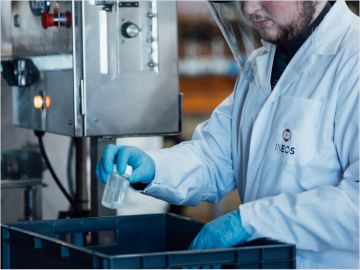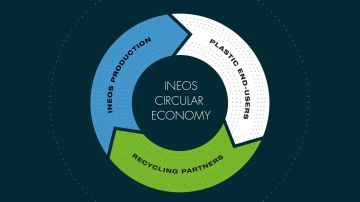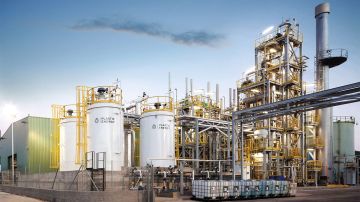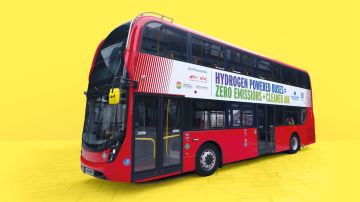INEOS is now working with a visionary company that has developed and currently operates a unique process to recycle plastic that no one else can.
It has signed an agreement with PLASTIC ENERGY to develop a recycling plant to convert difficult-to-recycle plastic waste into clean, recycled plastics, with production due to start in 2023.
The two companies, who share a vision of a world where plastic is valued, will use their expertise and industry knowledge to decide on the best location.
“This really will help us to make a difference to a world where using plastic is no longer a threat,” said Carlos Monreal, founder and CEO of PLASTIC ENERGY.
His company has spent the past 10 years developing the patented recycling technology which turns plastics, traditionally destined for landfill or incineration sites, into TACOIL.
TACOIL is a recycled oil which can be used in petrochemical plants to make ethylene and propylene – the key building blocks for plastics.
Currently chemical companies, like INEOS, make those building blocks with gas and oil and then convert those into polyolefins.
PLASTIC ENERGY already owns and operates two plants in Spain where the technology is in use 24 hours a day, 330 days a year.
“It is not science fiction or a project or a dream,” said Carlos. “It is a reality and something we would like to share with the world.”
Rob Ingram, CEO INEOS Olefins & Polymers, said the agreement to build an advanced recycling plant marked another important milestone in INEOS’ sustainability strategy.
“To take plastic waste back to virgin plastic is the ultimate definition of recycling and helps us to move towards a circular future for plastics,” he said.
PLASTIC ENERGY
TACOIL is a recycled oil which can be used in petrochemical plants to make ethylene and propylene – the key building blocks for plastics.
Thermal Anaerobic Conversion (TAC)
Patented TAC technology converts end-of-life plastic waste into a TACOIL to create clean recycled plastics or alternative low-carbon fuels.
TAC Process
Plastic waste is heated in the absence of oxygen until it melts and the polymer molecules break down to form a rich saturated hydrocarbon vapour.
As a result of this TAC process, the condensable gases are converted to hydrocarbon products while the non-condensable gases are collected separately and combusted to process energy.
TACOIL
For every tonne of end-of-life plastic waste processed, 850 litres of chemical feedstock TACOIL are produced.















